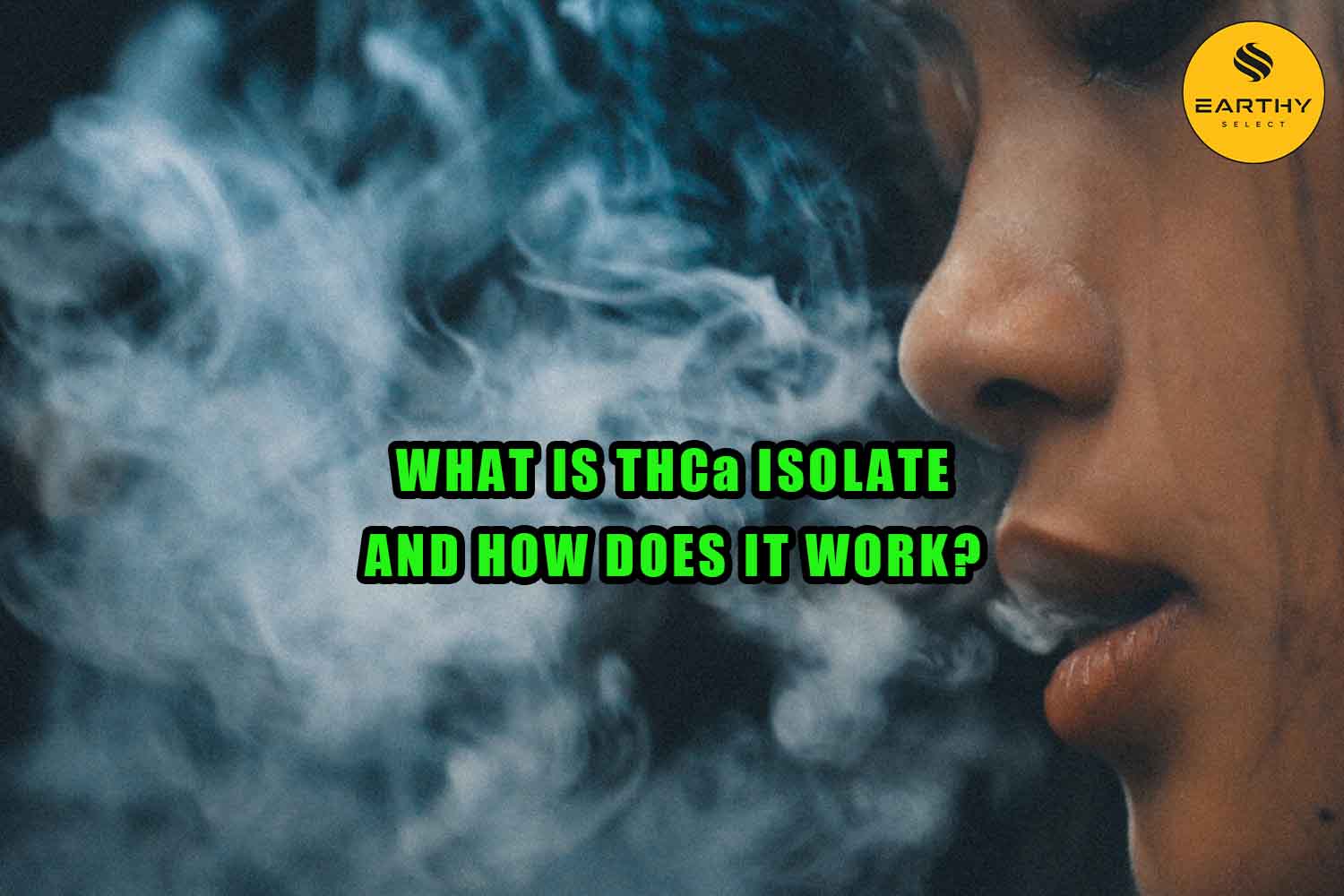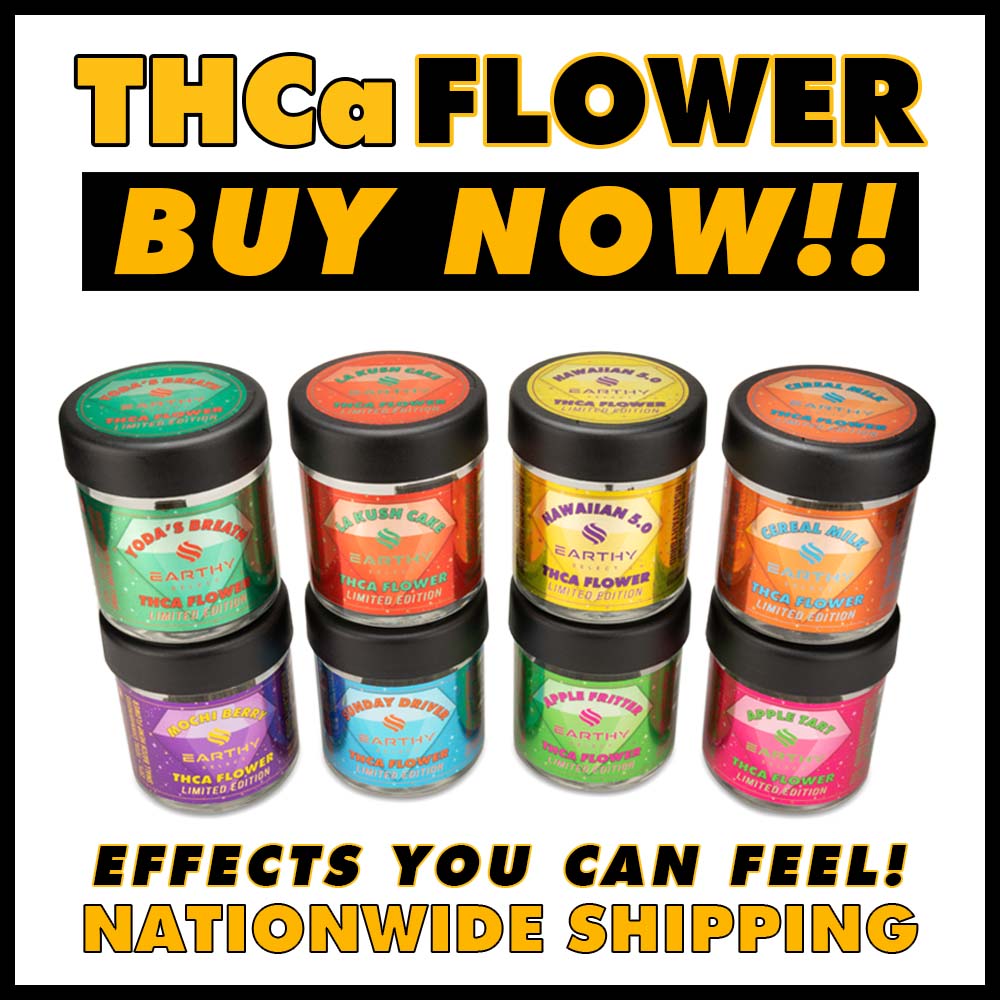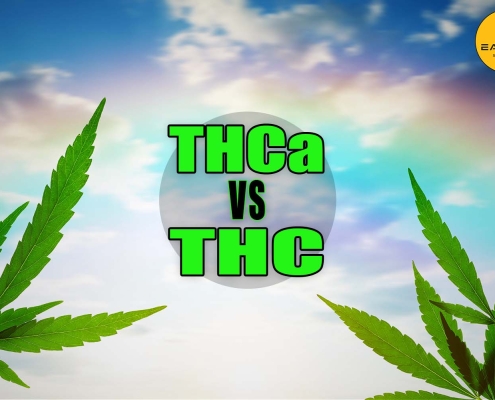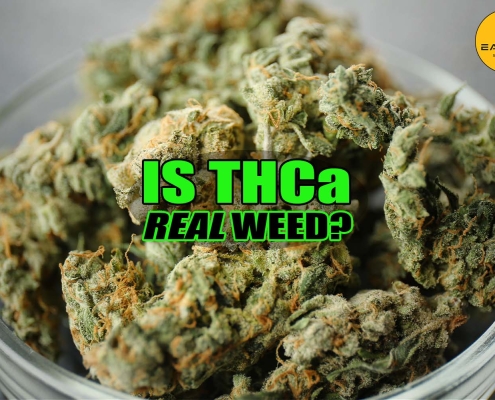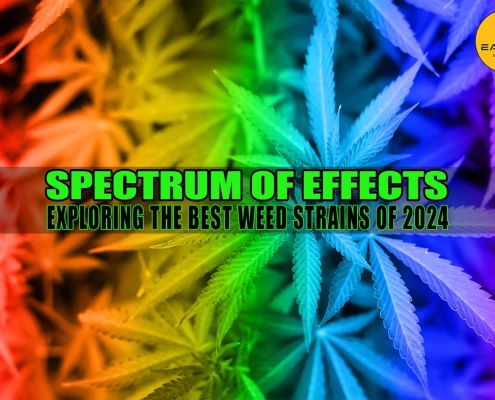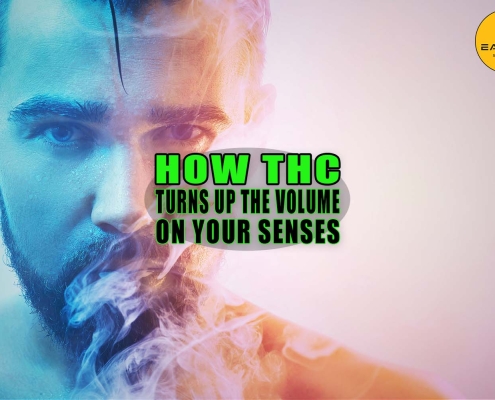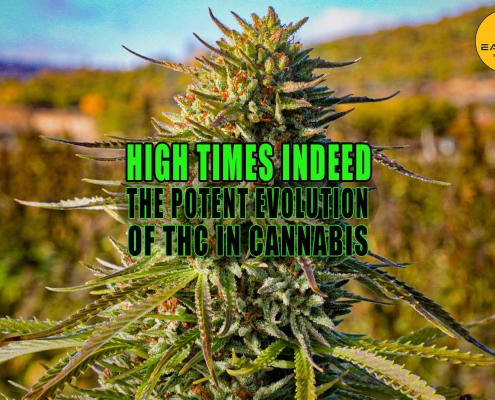What is THCa Isolate and How Does it Work?
As cannabis concentrate aficionados sing the praises of THCa isolate—the latest star in the cannabinoid world—many people are madly googling it to find out exactly what it is and how it works. We’re here to help demystify it. What is THCa isolate? The truth is it’s simply a highly pure, concentrated form of THC’s acidic precursor. But the story doesn’t end here. THCa isolate has the potential to turn otherwise humdrum cannabis experiences into something extraordinary. How? We’ll explain.
THCa isolate has a broad range of uses and applications. This article will uncover how this potent form of pure THCa is made, how it can change with heat, how it can be used, and other handy information. Let’s dive in.
What is THCa?
Tetrahydrocannabinolic Acid (THCa) is a non-psychoactive cannabinoid found in raw cannabis plant material. Freshly harvested cannabis flowers contain many cannabinoids, yet none have the potential to convert to a psychoactive compound except THCa. In short, THCa is an acidic molecule that changes to the psychoactive tetrahydrocannabinol (THC) when aged or heated.
In its natural botanical progression, the cannabis plant undergoes a vegetative and blooming stage. Whilst in this stage, it produces cannabigerolic acid (CBGa), the “mother of all cannabinoids,” which then changes to other cannabinoids. Enzymes convert this CBGa into CBG and, ultimately, other non-acidic cannabinoids. Likewise, CBDa will convert to CBD via enzymes and light synthesis. However, unlike these other cannabinoid conversions, THCa will turn into a psychoactive form of its precursor molecule [1].
But THCa does not always convert to THC. It may be consumed raw from the cannabis plant before it has had a chance to dry or heat, and can be extracted in this form to use in tinctures, edibles, or smoothies. It can also be processed into an extremely pure THCa crystalline extract which is a white, odorless, and flavorless substance. Because all other cannabis compounds are taken out of it, THCa isolate has no terpenes or other cannabinoids present [2].
What is THCa isolate?
Though some call it THCa crystals or THCa crystalline, THCa isolate is the pure, un-decarboxylated form of THC. In contrast to THCa, decarboxylated THC is liquid at room temperature and cannot crystalize like its acidic precursor. Thus, when THCa is extracted, it forms various sizes of crystal formation. Some extractions form tiny crystalline structures that appear as powdery white crystals, whereas other slightly different processes create slightly larger crystalline structures.
These cannabidiolic acid structures contain up to 99% THCa after their extraction process, making them profoundly potent. Odorless, flavorless, and devoid of all other cannabis compounds, THCa isolate products comprise the purest form of THCa.
THCa Diamonds vs Isolate: Learn How They Differ
How is THCa isolate used?
Consuming THCa isolate orally is a popular way of taking advantage of the pure non-acidic attributes of THCa. It can be added to recipes for making edibles or dissolved in oil to make tinctures and then ingested orally. Transdermal patches are another way some THCa enthusiasts choose to utilize the cannabinoid.
In contrast, many people enjoy dabbing or vaping THCa isolate, a process that converts the cannabinoid into THC. Consuming THCa isolates via dabbing is done via a dab rig, which is a type of bong-like smoking apparatus that vaporizes the crystalline powder so it can be inhaled in controlled doses.
How to Use THCa for Great Results
Though THCa isolate has no other elements of the cannabis plant present, it can be combined later with other cannabis compounds to increase its potency or change its effect. For example, by mixing THCa isolate with terpene concentrates or other cannabinoids, the overall effect may be altered due to the entourage effect. The entourage effect is a hypothesis that cannabis compounds act synergistically together and ultimately enhance and modulate the overall effects of the plant [3].
Is THCa isolate safe?
In and of itself, THCa doesn’t have any notable dangers or side effects. However, there is the danger that a user may not understand that THCa converts to psychoactive THC when heated. In this case, a THCa isolate user could become intoxicated by accident. THCa isolate should always be stored in a cool, dark place where there is little risk of decarboxylation. And, as always, it is important to consult your doctor before taking THCa, especially if you take medications [4].
A variety of drug tests use THCa as a target analyte for drug testing. For this reason, THCa may turn a drug test positive for marijuana use even though THCa is non-psychoactive. Thus, if you are anticipating a drug test, it is advisable to avoid consuming products that contain THCa for a period of time, or talk with your doctor about it so that they know you may receive a false positive due to THCa use.
Is THCa isolate legal?
THCa flower and THCa isolate are lawful in many states. For example, North Carolina does not require a “total THC” test for hemp in its statutes or regulations, so THCa is not counted in the overall THC content of the plant, rendering products containing THCa federally compliant. In contrast, THCa flower may be restricted in some states which use a “total THC” standard for post-harvest hemp [5]. Because of the variations of state laws regarding THC testing, it’s important to know your state’s statutes and regulations if you plan to buy, sell, or use THCa or other cannabis products.
The Farm Bills and the legality of the cannabis plant
The Marihuana Tax Act of 1937 outlawed cannabis cultivation, making it difficult, if not impossible, for farmers to produce even non-psychoactive hemp. Further limiting hemp cultivation, Richard Nixon signed the Controlled Substances Act of 1970, which gave hemp the same legal status as marijuana [6].
However, after the 2014 Farm Bill removed hemp from the Drug Enforcement Agency (DEA) list of Schedule 1 substances, hemp cultivation became federally compliant and allowed cannabis research to begin.
Next, the 2018 Farm Bill allowed people to produce, sell, and consume hemp-derived products. Legal experts assured cultivators, sellers, and consumers that all other plant materials and substances derived from legally-defined hemp were finally federally-compliant [7].
Federal law defines cannabis plants with less than 0.3 percent Delta-9 THC per dry weight as hemp plants and allows hemp production and consumption in all 50 states. Yet, a plant with more than 0.3% Delta-9 THC per dry weight is defined as marijuana. Federal law still treats this as a controlled substance on the DEA’s Schedule 1 list.
Nonetheless, some states currently allow adult use of medical and recreational marijuana containing much more than 0.3% Delta-9 THC.
Read the Guide to Hemp-Derived Delta-9 THC for more info!
Is THCa isolate a non-psychoactive cannabinoid?
Unless THCa isolate is heated, dried, or exposed to an extended light source, it is a non-psychoactive cannabinoid. Therefore, THCa isolate and other THCa products will not behave in the endocannabinoid system in the same way as Delta-8, Delta-9, or Delta-10 THC. Even so, many people anecdotally claim that when they consume THCa, they experience other therapeutic benefits, yet more research is needed to codify these results.
How THCa isolates are made
One of the most complicated forms of cannabis products to make, THCa isolates are prized for their extremely pure form and high THCa content. THCa diamonds, THCa crystalline, and THC isolate are all names that signify end products that feature the pure, crystalized form of THCa. With no psychoactive effects (unless heated), a neutral taste, and a sugary appearance, THCa isolate is especially appealing to cannabis users who seek various therapeutic or cerebral benefits [8].
THCa isolate begins with cannabis extract. Then, it is combined with acetic acid to make it dissolve the terpenes, fats, lipids, and other cannabinoids from the extract. What is left is THCa without the rest of the plant compounds.
The THCa extract is then processed in a rotary vessel or reactionary vessel machine where it is pressurized and processed until the solvent evaporates, leaving behind a more concentrated solvent of tetrahydrocannabinolic acid (THCa).
A process called chromatography removes the final unwanted compounds. Lastly, the solution is processed again in the rotary or reactionary vessel to separate the THCa from any remaining compounds.
THCa molecules have now chemically bonded to one another, forming a crystalline structure that resembles powder or gemlike crystals [9].
Benefits of THCa
Anecdotal reports point to the possibility that THCa has varying therapeutic effects, but research is scarce. Some limited studies indicate that THCa may have promising potential in relation to neurodegenerative diseases. Though additional research is needed to establish human results, in animal models, THCa was shown to act as a potent agonist with neuroprotective activity [10].
What other cannabinoids are available in crystalline or isolate form?
The goal of making crystalline or isolated forms of cannabinoids is to produce a pure form with only one cannabinoid present. However, the only cannabinoids that are typically made this way are THCa, CBDa, and CBD. Consuming THCa, CBDa, or CBD does not produce a psychotropic high, though THCa converts to THC when heated, making the crystalline substance almost instantly intoxicating.
So, why don’t you see crystalline THC products for people who are seeking a high? In short, Delta-8, Delta-9, and Delta-10 THC are not available as crystalline isolates because, chemically speaking, THC cannot maintain a crystalline structure. In other words, what’s often referred to as THC crystals is not pure THC, but rather pure THCa. That is, THCa crystalline converts to active THC through decarboxylation when its chemical structure changes by way of heat exposure.
However, CBD does hold a crystalline structure. For this reason, you won’t see THC crystalline isolates, but CBDa and CBD crystalline (or isolate) are readily available [11].
How can I use THCa isolate?
Apart from dabbing and vaping your THCa isolate, you can incorporate it into your smoking rituals, if that’s to your taste. Simply sprinkle THCa isolate powder on top of your packed bowl or blend it with your loose flower and roll it up in paper. However, keep in mind that these methods of consumption will immediately convert your THCa isolate into psychoactive THC.
But not everyone’s interested in these effects. Alternatively, you can consume THCa isolate orally. For example, you can combine your THCa isolate powder into smoothies or other cold foods to keep your non-psychoactive cannabinoid intact. Additionally, some folks like to put their powder into capsules for easily regulated dosage regimens.
Another easy way to take THCa is in tinctures and droppers. Tinctures can be swallowed or absorbed sublingually. Sublingual consumption may have quicker effects compared to oral ingestion. To take it sublingually, you may apply your tincture drops under your tongue. This way, the THCa is absorbed more directly into your bloodstream. But be careful if you decide to cook with your THCa isolate. Though this is a perfectly acceptable way to use THCa isolate, the heat will convert it to psychoactive THC [12].
Why Pure THCa Diamonds Are So Enticing
Key takeaway about THCa isolate
Lately, everyone seems to want to get their hands on these white hemp-derived crystals. Why? The answer may lie in its high potency and purity as well as its versatility. You can buy THCa Diamonds directly from Earthy Select – they are over 99.9% THCa!
The bottom line about THCa isolate is that it can offer your body a variety of potential pleasures. Whether you’re seeking a lovely buzz or wish to experiment with the potential therapeutic aspects of the acidic cannabinoid, give THCa isolate a try.
Learn more in What is the Future of THC?
Medical Disclaimer / Legal Disclaimer – Information is provided for educational purposes. It does not and is not intended to constitute legal advice or medical advice. We attempt to be accurate and up-to-date, but the legality of cannabinoids and the science of cannabis are evolving. The author is neither a legal professional nor a medical expert. Before buying or using any products, you should check with your local authorities and medical providers.
References
- What Is THCa Isolate and How Does It Work
- What Are THCa and CBDa Crystalline Cannabinoids?
- Entourage Effect
- THCA vs. THC: More Different than You’d Expect
- THCa Flower the Next Big Thing in Hempland
- 1970 Controlled Substances Act
- HIA Position Statement on Delta-8 and Hemp Cannabinoids
- What Is THCa Crystalline
- THCa Isolate
- Tetrahydrocannabinolic Acid is a Potent PPARγ Agonist with Neuroprotective Activity
- What cannabinoids are available in crystalline form?
- What Is THCa Isolate?
- THCa Isolate Diamonds Manage Pain More
- What Is THCA and It’s Benefits? | THC vs THCA
Frequently Asked Questions
What is THCa isolate?
THCa isolate is concentrated pure THCa with high potency and purity.
Does THCa isolate get you high?
Yes, it can, indirectly. THCa isolate is non-psychoactive. Yet, when it is heated by smoking, vaping, or cooking, it is converted to Delta-9 THC, which is psychoactive and can produce feelings of being high
Is THCa isolate stronger than THC?
THCa is the precursor to THC, and transforms into THC when decarboxylated. Isolate may produce strong effects since it a concentrated form of THCa.
What is a COA for THCa isolate?
COA stands for certificate of analysis. It’s simply a lab report detailing the types, and levels, of cannabinoids that are present in a tested substance.

